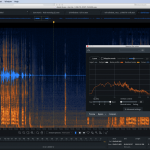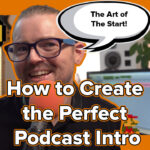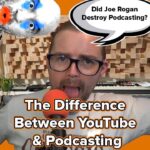How to Craft the Perfect Podcast Intro
In the spirit of starting as you mean to go on, the introduction to your podcast should be a shining example of what your show is all about. Your intro is the first and best chance you’ll get to retain the listener’s attention, so being engaging and concise can be the difference when it comes to building an audience.
Audience connection = Retention of the information = Returning for future episodes
Structure
A good way to think about your podcast is like a points system. Every time your listener takes away something of value then you gain a point. On the flip side of that, asking something of the listener like a call to action will result in you losing a point.
You want the listener to be invested in the show without turning them off by asking something of them and snapping them out of their thought process. This is why the structure of your introduction is so important in holding retention.
Having teasers at the start of your show is a great form of engagement, but be sure to pre-empt them with something like a “Here’s what’s coming on the (insert podcast name here)”.
A lot of shows just jump straight into the teasers at the beginning, but this could lead to the listener thinking they’ve skipped to a random part of the show. Instead, if you first open the door and welcome the listener in, there will be no mistaking where they are.
Who is the host?
Let the audience know exactly who they’re listening to, and that you’re not just a nameless, faceless AI (if you are then that’s fine too but maybe just say so).
What is the show name?
“Hi I’m (insert name here) and welcome to the show” is all fine and well, but adding and you’re listening to (insert show name here)” is a nice little addition that will only serve to help you.
Yes, your show name might be right there in the title, but actively speaking it welcomes the listener in that little bit more.
Who is the intended audience?
Give a short description of the overarching themes that your show focuses on in general. This will help the listener know why your show is going to be of interest to them specifically, regardless of who the guest is.
Like mentioned above, connecting with your audience will mean they retain the information and return to your show.
Who are the guests and what are their credentials?
It’s one thing telling the listener who the guest is, but what field is the guest specialised in? Why are they on your show? What can the guest’s knowledge bring to your audience specifically?
Equally as important and mostly missed by 99 % of most podcasts out there, is answering what drew the host to wanting to interview this person in the first place… have there been real life lessons learned from implementing what the guest is speaking about? Super powerful!
What is the content?
The Jordan Harbinger show is a prime example of making it very clear the value that the show is going to provide right from the very start.
In his introduction he states that – “each episode turns our guests’ wisdom into practical advice that you can use to build a deeper understanding of how the world works and become a better critical thinker.”
Now, if you’re listening to an interview with an astronaut on his show, not only will it be inherently interesting, but it could also lead to you gaining such a deep understanding of the topics discussed that you too could end up in space one day!
What are the topics?
After introducing your guest, having some further topical teasers will draw the listener in further. If you have an astronaut guest then it’s pretty safe to assume that space will come up in the conversation, but if you know this for a fact then you might be more inclined to listen on and settle in to the show. Alternatively choose things that you’re audience might not be expecting from an astronaut.
Is the quality good?
If you have teasers at the start then the quality of the show’s audio quality will become obvious pretty quickly and there will be no surprises. Of course, guest audio isn’t always something within your control.
Aside from the teasers, try to make sure you at least take your own audio quality into consideration. You could also spice up transitions between different sections by adding some music. These could be little bumpers that help establish shifts between sections and add some production value to your show.
Don’t ask too much.
Avoid asking too much of the listener and if you do, make sure it’s because you’re providing a beneficial actionable takeaway. This could be something like pointing the audience towards a free course that you offer or even just towards your website or some show notes. This way, yes, you’re asking something of them but that’s because you’re providing them with something. For free. WIN WIN.
Make it fun!
With all the steps you can take to make your intro perfect, don’t forget to make it fun! Intros shouldn’t be too long and should only serve to help invite people into your show. Things like telling a funny story about something that happened to you recently will help build familiarity with you and your show, so try to keep it as fun as possible.
To summarise, your listeners need to feel connected from the word go. They need to find themselves in what you’re saying and the solution for the questions they have, and it needs to all happen and for the tone to be set from the very first few minutes.



